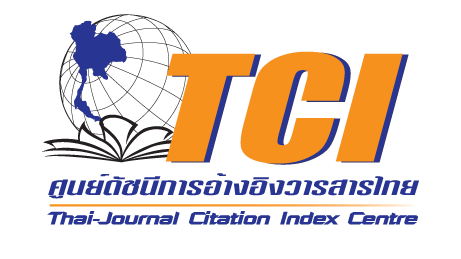ISSN: 2774-132X (Online)
About the Journal
Aims and Scope
Mahidol Music Journal (MMJ) is scholarly publication committed to the comprehensive exploration of music studies within both national and global contexts. This journal serves as a bilingual platform for academic discourse in English and Thai, adhering to internationally recognized editorial standards and ethical practices with support of experienced reviewers. The journal stands out for its unique focus on deeply rooted Thai traditional and vernacular music, some of which have inter-integrated with western music. In addition, MMJ regularly publishes scholarly studies on Thai instruments such as the Phin Pia, Khean, Saw-U, Pi Nai, and Ja-Khe, as well as research on regional musical forms including Kantrum, Mangkhala, and Nora. This makes MMJ a key outlet for preserving and innovating Thai musical heritage. MMJ invites submissions that cover an extensive array of music genres—including classical, popular, jazz, Thai, and world music.
The journal includes the following areas of content:
- Ethnomusicology: Thai-folk music, Ethnic music and Thai traditional music.
- Music Education: curriculum development, pedagogy, practice method, study guide, and transmission process.
- Music Theory and Composition: analysis of music, music composition, and music arrangement.
- Music Performance: practical guide, performance technique, and performance interpretation.
- Other Areas of Study: musicology, music therapy, and music business.
Peer Review Process
All manuscripts submitted to Mahidol Music Journal (MMJ) undergo a double-blind peer-review process, ensuring that both authors and reviewers remain anonymous. The process begins with manuscript submission via the ThaiJO online system, followed by a preliminary review by the editorial team to assess originality, relevance, plagiarism, formatting, and citation style. If the manuscript meets the journal’s standards, the editor assigns three independent reviewers based on their expertise and institutional affiliation. For complete information on the peer review process, please refer to this link.
Publication Frequency (twice a year)
- No. 1: January - June
- No. 2: July - December
Types of Articles
Research Article: Present original research related to music, exploring themes such as ethnomusicology, Thai music, music education, and related fields. The article should be clearly and concisely written. demonstrating originality and a well-organized structure. It must also include a thorough discussion of the research findings, linking them to broader concepts within music studies and highlighting their significance within the field. The complete manuscript, including illustrations, examples, and citations, should be approximately 6,000 - 8,000 words in length (equivalent to 15 - 20 A4 pages).
Academic Article: Present thorough analyses and assessments that encompass backgrounds, goals, and potential solutions to issues. The article should explore recognized theories by credible scholars, uphold an unbiased perspective, and enhance the discourse within the realm of music. The complete manucsript, including illustrations, examples, and citations, should be approximately 6,000 - 8,000 words in length (equivalent to 15 - 20 A4 pages).
Language
MMJ welcomes submissions in both English and Thai, focusing on topics that fit within its scope and meet academic writing standards. Authors are expected to use clear, concise language with proper grammar and spelling. All submissions, whether in Thai or English, should undergo thorough editing and proofreading to ensure they meet the highest linguistic and academic standards. For more details in manuscript preparation, please refer to Authors Guidelines for Article in English and Authors Guidelines for Article in Thai
Publication Fees
Once a manuscript successfully passes the preliminary screening by the editorial team, authors are required to pay a publication fee of 4,000 Baht (120 USD) for Thai manuscript and 6,000 Baht (180 USD) for English manuscript. This fee covers the costs associated with the peer review process, including the evaluation and assessment conducted by the reviewers. For English manuscript, the fee also include final English language editing. The publication fees do not affect the review process and result. Refunds will not be granted under any circumstances, regardless of the editorial decision.
Bank Account Name: College of Music, Mahidol University
Bank Account No.: 333-210822-1, Siam Commercial Bank (SCB)
Open Access Policy
MMJ aims to fostering extensive dissemination and accessibility of its article. We provide open access to our content, thereby allowing readers to access and download articles online free of charge.
Ownership and Management
The Mahidol Music Journal (MMJ) is owned and sponsored by the College of Music, Mahidol University, which oversees and manages all aspects of its publication process. All financial support contributes to the sustainability of a rigorous peer-review process and the continued excellence of scholarly publishing in the field of music.
Publisher
Mahidol Music Journal (MMJ), peer-reviewed journal, is subjected to the online publishing under the supervision of the College of Music, Mahidol University, Thailand.
Address: 25/25 Phutthamonthon Sai 4 Road, Salaya, Phutthamonthon, Nakhon Pathom, Thailand 73170
Tel: +66 2 800 2525 ext. 1124
Email: mahidolamj@gmail.com
Copyright and Licensing
All articles published in the MMJ are entirely open-access and are available to readers at no charge under the Creative Commons Attribution (CC-BY) license. This license allows authors to maintain copyright over their works while granting MMJ the right of first publication. The work is concurrently licensed under the Attribution International (CC-BY) license, which permits others to share, copy, redistribute the content in any medium or format, and adapt, remix, transform, or build upon the material for any purpose, including commercial use, provided that proper credit is given to the original authors and the initial publication in this journal is acknowledged.
Revenue Sources
The production of the journal and peer-review process is fully supported by the publication fees. This financial resource does not influence the editorial board's decisions on reviewing or publishing articles.
Advertising
The Mahidol Music Journal (MMJ) does not accept advertisements or generate revenue through commercial sponsorship. This policy ensures that the journal remains free from external influence and maintains its editorial independence. While MMJ may share information about academic conferences, research initiatives, or institutional activities on its official website, such content is reviewed for relevance and must align with the journal’s ethical standards.
Direct Marketing
For promoting the journal, MMJ employs direct marketing activities through ThaiJo website, the official Facebook page, and e-mail to communicate with researchers in relevant field.





